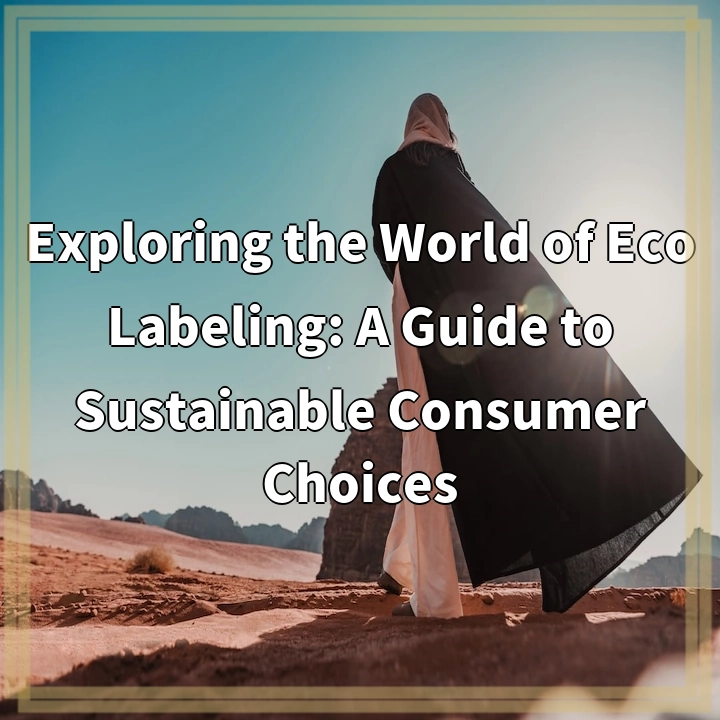Physical Address
304 North Cardinal St.
Dorchester Center, MA 02124
Physical Address
304 North Cardinal St.
Dorchester Center, MA 02124

Eco labeling is a system that aims to provide consumers with information about the environmental impact of products they purchase. This labeling system, often displayed in the form of symbols or logos on product packaging, informs consumers about the sustainability credentials of a product, such as its energy efficiency, carbon footprint, or use of recycled materials. The goal is to empower consumers to make informed choices and support environmentally-friendly products.
One of the major challenges associated with eco labeling is the issue of greenwashing. Greenwashing occurs when companies mislead consumers by falsely claiming their products or practices are more environmentally friendly than they actually are. Some companies may use misleading or vague eco-labels to make their products appear more sustainable, while the reality may be quite different. This makes it difficult for consumers to trust the labels and make truly sustainable choices.
Another problem is the lack of uniform standards and regulations for eco labeling. Different countries and organizations have their own eco-labeling schemes, leading to confusion and inconsistency in the market. Different labels with conflicting criteria may make it challenging for consumers to compare products and understand their environmental impact. A standardized approach to eco labeling could enhance transparency and enable consumers to make more informed decisions.
The scope of eco labeling can vary and may not cover all aspects of a product’s life cycle. Some labels focus solely on one environmental measure, such as energy efficiency, while ignoring issues like water usage, waste management, or the social impact of a product. This limited scope can prevent consumers from having a comprehensive understanding of a product’s overall sustainability performance.
Obtaining eco labels can be expensive for smaller companies, especially those in developing countries. The costs associated with certification and compliance may limit the ability of these companies to participate in eco labeling programs. Additionally, the accessibility of eco labeling information can be a challenge, with limited awareness among consumers or difficulty in accessing information about the labels.
The field of environmental sustainability is constantly evolving, with new research and technologies emerging. This poses a challenge for eco labeling, as labels need to keep up with the latest scientific findings and industry innovations. The labels must adapt to changing standards and incorporate new measures to ensure they remain relevant and accurate.
To combat greenwashing, regulatory agencies and industry stakeholders should establish stricter guidelines and enforcement mechanisms. Clear and standardized requirements for eco labeling can help improve transparency and eliminate misleading or vague labeling practices.
Achieving a globally recognized and standardized eco labeling system can enhance consumer confidence and facilitate easier comparison of products. International cooperation and harmonization efforts should focus on aligning criteria and requirements to create a cohesive and consistent framework.
Expanding the scope of eco labeling to include multiple environmental factors, such as water usage, waste management, and social impact, can provide a more holistic picture of a product’s sustainability performance. This can be achieved through the development of multi-criteria labeling schemes to address the limitations of single-issue labels.
Providing financial assistance and resources to smaller companies, particularly those in developing countries, can help them participate in eco labeling programs. This can be done through grants, subsidies, and capacity-building measures to reduce the economic barriers associated with certification.
Eco labeling systems should remain agile and adapt to evolving scientific research and technological advancements. Regular reassessment and updating of standards can ensure labels stay relevant and accurate, incorporating new measures and metrics that reflect the latest understanding of environmental sustainability.
By implementing these solutions, eco labeling can become a more reliable and effective tool for empowering consumers to make sustainable choices. It will help build trust in the labeling process and drive positive environmental change on a global scale.
Eco Labeling
If you’re wondering where the article came from!
#